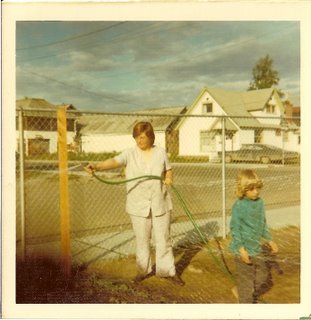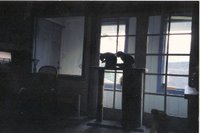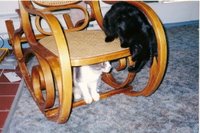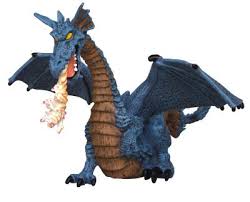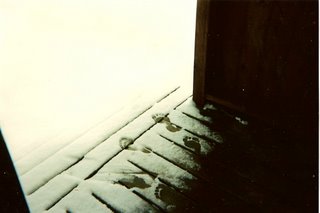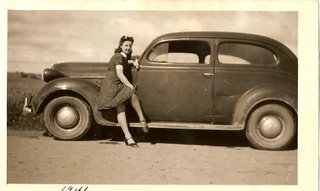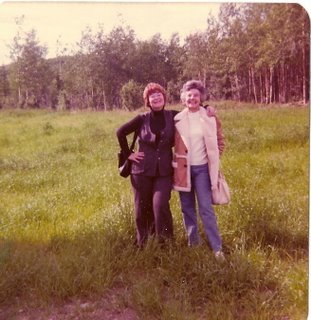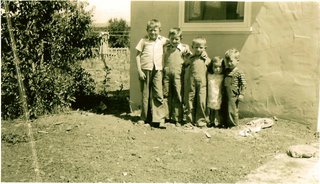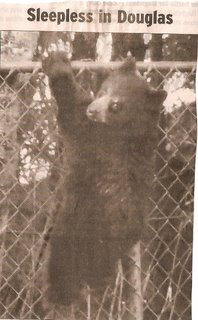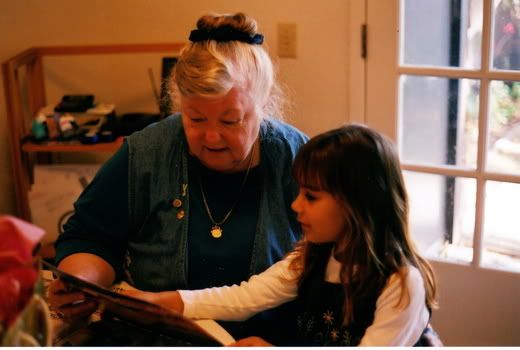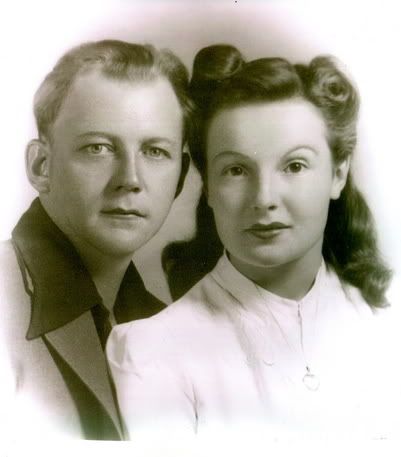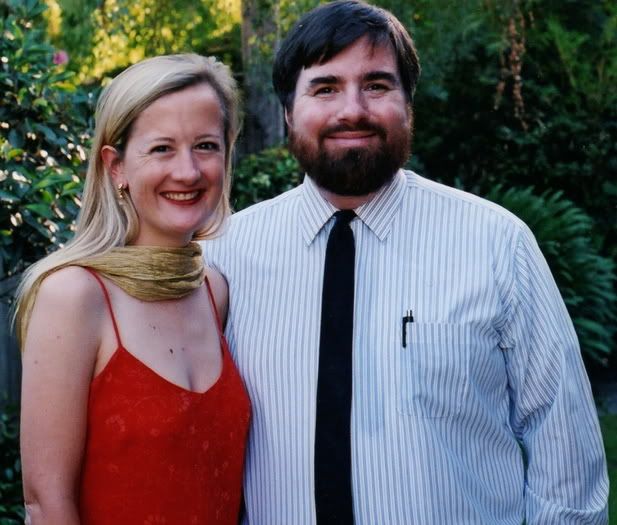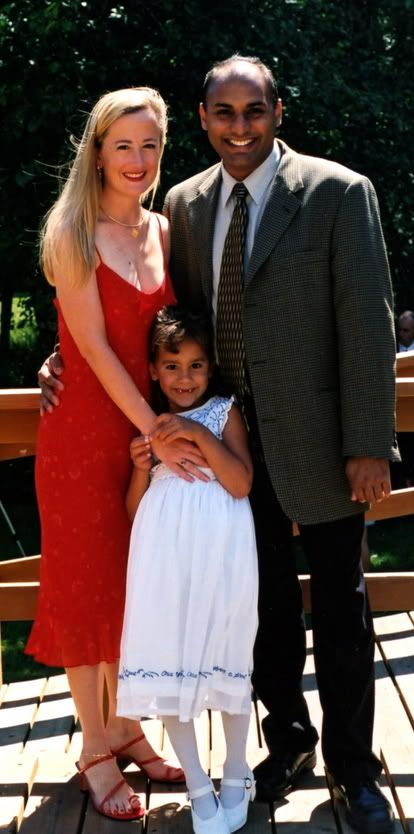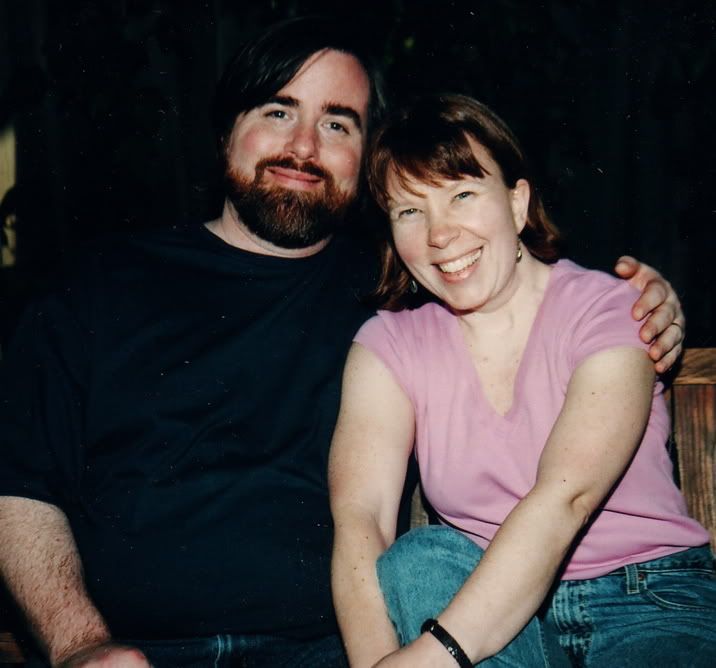I was over at
Echidne of the Snakes and found this little exercise which looks like it can be very illuminating.
Let Us Praise Ourselves
Zuzu on feministe suggests an interesting topic for discussions on feminist blogs: The difficulty we have of stating our good points. The "we" here is most likely feminist women, but all sorts of people have trouble with this. Just imagine yourself standing in front of some small group of quite friendly people and being asked to list at least five things about yourself that you really like. Gulp.
***Remember the rules: No belittling, no hedging.
Ok. So, I'm pretty set-up with how confidant I have become over the years. I know that I couldn't have done this in my 20s without a
lot of belittling and hedging. But, over the years I have seen my self-confidence grow and my ability to be embarrassed by myself really shrink. So, can I do this?
1. I am kind. Certified by a number of people, and finally recognized by myself.
2. I am a talented writer. I do it well and love to do it and have never experienced writer's block, no matter the product. Grant proposals to poetry, I have a wide range.
3. I have a great sense of humor. I can laugh at myself, and at a wide variety of kinds of humor. From knock-knock jokes to puns to erudite and cryptic references, I see funny in a lot of places. I tell jokes well, with emphasis and inflection and very good timing. I don't like practical jokes that hurt people or embarrass them, but if they are truly in good fun I think they are funny. I can get with nonsense and silliness. I appreciate over-the-top stupidity and dry wit. I've even, over the decades since I left Catholic boarding school, learned to like earthy jokes and scatalogical delivery. (Although, I wouldn't want to listen to a Carlin or a Lewis Black CD with my mother.)
4. I'm damned smart and not hesitant to say so. I don't believe that there is anyone who can make me feel stupid. Physicists (and other people whose minds work differently than mine) can make me know how little I know about their world without making me feel dumb because of it. The brillance of the neo-cons have never impressed me, since by my standards, they are not intellectuals, no matter whether they think they are or not. I like being smart. It was my claim to family attention when I was little and the only child/grandchild/niece around and it still is. I
never let a guy think he was smarter than me, because I respect guys and myself more than that. I didn't hesitate to raise my hand and know the answer first when I was in school and I was willing to sit up all night and argue with my husband about ideas. And, when I meet someone who is smarter than me (there are lots of them out there) it is a sheer pleasure. I can be competitive, but not fragile, about this.
5. I have made peace with and become proud of my Inner Bitch. That's the part of me that can fight for the right. It gives me strength and inventiveness and will find the way to protect and advance.
6. I love the way my hair is graying. I liked it when it was auburn and I have liked it at every stage in between. I did add some highlights when the blonde began to brown out, but the minute the gray started coming in I stopped that because I didn't want to cover it up.
7. I can make friends quickly and easily. This is a result of moving around so much as a child -- you make friends quickly or you don't make them at all. And, apparently this is even more of an asset than one might think, because "smart girls" aren't supposed to be able to find friends quickly where ever they go, but I always have.
8. I know how to dress well. I have learned what looks good on me and how to put it together. I remember the day a man approached me on the street to ask where I bought my clothes, because he thought that if his wife had things like I have she could look "so attractive," too.
9. I am pretty unselfconscious. I wear men's shoes because I have very wide feet, and neither the shoes nor the reason I wear them bothers me. I know I'm fat and don't hesitate to talk about it when appropriate -- not in the "my diet" way which is really an apology for not being thin, but in the "Can you move six inches? I'm rounder than you think I am" way. Two weeks ago, when my bridge fell out and I was going around with a three tooth gap in the front of my mouth, I went to all of the meetings I was scheduled to attend and had the teens I work with in stitches over looking like a Jack-O-Lantern.
10. I'm pretty adventurous. I moved to Juneau without a job in line when I was 51 years old and had exactly one nickel left when I got my first paycheck. I lived on a homestead with a four year old and a six year old. I've fed frostbitten lettuce to a moose calf while his mother was watching -- admittedly, I thought she was the neighbor's "pet" moose, but still those are big animals.
I have to admit that I had no difficulty at all with this list. I could continue it, but twice the requirement seems enough to demonstrate just how superior I am. :)
And I'm wondering how this is? I know that Echidne's experience, of finding the task difficult, is much more the common one. Particularly for women, since we have been raised to think of ourselves last, to be modest, to let the men have the last word, to focus on others -- all of those things that make for low self-esteem and less than ideal mental health. Any woman in this culture -- hell, any woman who ever lived in any culture -- has had an incredible amount of brainwashing that should make this task not only difficult, but almost impossible. For women who can do it, this means that they most likely have been working on their self-confidence for a while and very consciously.
I think that the reasons I can do it easily are:
I had parents who genuinely loved me deeply. My father kissed me at my birth before I had been washed off -- it doesn't get any more accepting than that.
I had the wonderful experience of being the center of my entire extended family's world for five of my most formative years.
I went to a girls' boarding school, where there were no boys to defer to and excellence was expected of all of us.
I started working on ridding myself of the false modesty that I acquired subsequent to that (not that it ever took well) in my twenties.
And I'm almost 65 years old. I think that it is a general rule that we become more self confident as we get older -- what strangers walking down the street think of us simply becomes unimportant. For one thing, we begin to realize that strangers walking down the street probably have more important things to think about than us. We begin to realize that no one is perfect, and so we stop expecting it of ourselves. We figure out that the so-called dark parts of our personality are as necessary to life as our naughty-bits. Some one else has decided that we shouldn't show either, but we don't have to accept their rules: we can join a nudist camp or learn to appreciate what our anger is trying to do for us rather than swallow it.
And yet, and yet -- the list was easy to make, but pushing the publish button brings up thoughts of, maybe I am just a bit conceited. Gonna do it anyway . . . .
In A Nutshell follows
 You know how babies are attracted to other babies? Well, the same thing happens to adults in high schools. Every time I visit, as I am walking in the halls, all of the adults who pass me smile and say hi! We, also, recognize our own kind.
You know how babies are attracted to other babies? Well, the same thing happens to adults in high schools. Every time I visit, as I am walking in the halls, all of the adults who pass me smile and say hi! We, also, recognize our own kind.